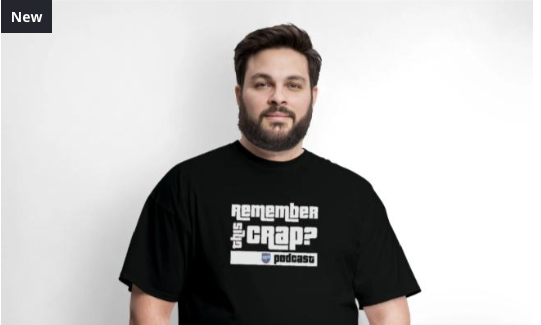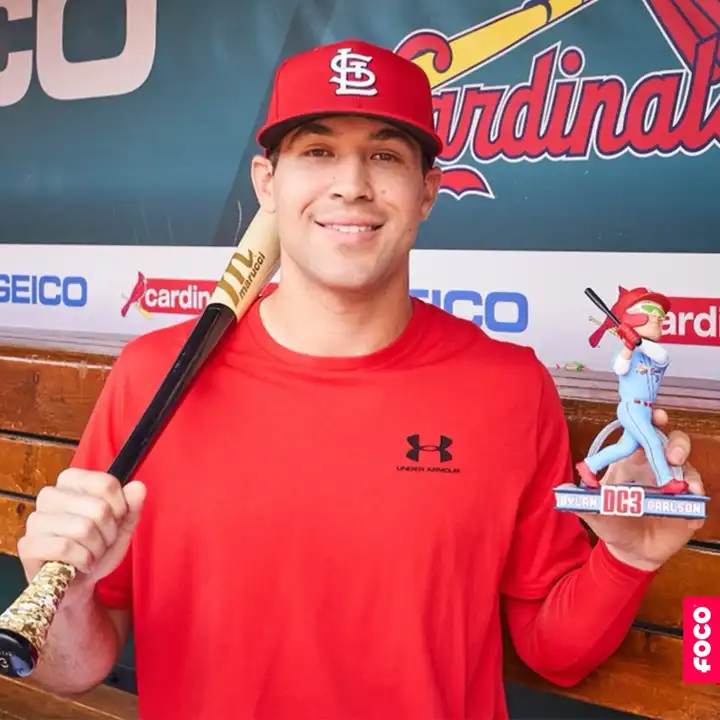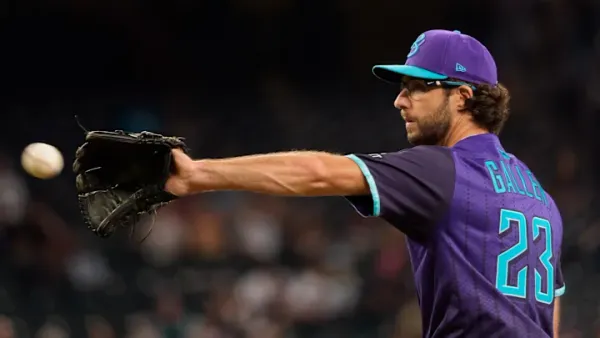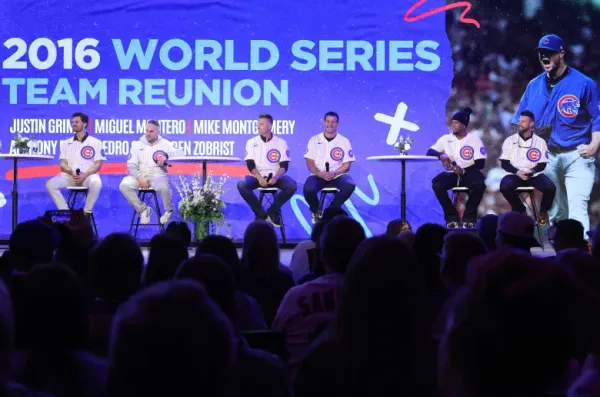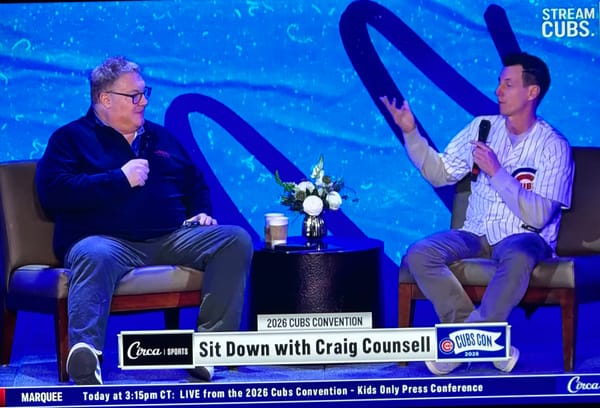Call it a failure, because it is
The Cubs went halfway in and are all the way out
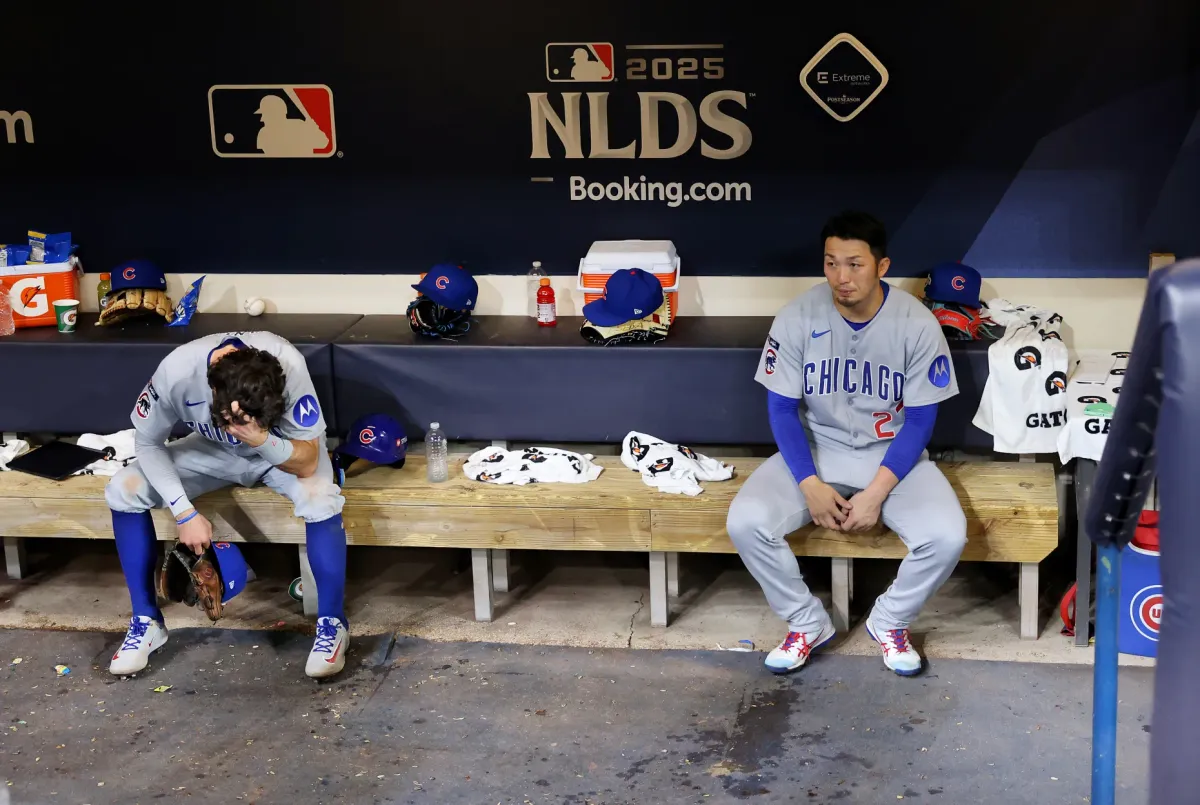

In the 150 year history of the Cubs, seasons that include winning a playoff series of any length are few and far between. 1907. 1908. 2003. 2015. 2016. 2017. 2025.
So you'd be hard pressed to consider this year a flop, right?
No. Not really.
The 2025 Cubs won a best two of three playoff series that they shouldn't have been in. And they lost a five game series to a division foe that they should have never allowed to finish in front of them in the regular season, or beat them in the postseason.
The Cubs unashamedly built a roster that they felt was just good enough to get into the playoffs and then, "anything can happen." What usually happens is that the best teams win playoff series, that's why you should try to build one of those.
On November 6, 2023 the Cubs shocked baseball by firing a dullard, easily manipulated manager (their favorite kind) in David Ross to hire the best available one (Craig Counsell.)
On December 13, 2024 they traded three players to the Astros for one of the best players in baseball, Kyle Tucker.
In both instances the moves were bold, aggressive and a signal that they were serious about building a great team commensurate with the resources (financial and otherwise) that they have at their disposal.
And, in both instances, they did jack shit after they made those moves.
Signing Counsell was surely a sign that they'd dramatically upgrade the roster they were about to hand him. But they didn't. In their minds, he was good in Milwaukee at squeezing more wins out of teams than seemed realistic, and if they hired him they could just give him a nearly identical roster to the one Ross could never make work, and by magic, Craig would steer it to success. Whatever they think that is.
They won 83 games in Ross's final season. They won 83 games in Counsell's first season.
By trading for Tucker, you were sure that they realized they needed more, better players to make this work. Rumors flew about how aggressive they'd be in signing free agents (Max Fried, Alex Bregman, etc.) to really make a push in case Tucker left after the one remaining season on his contract. Surely, you didn't make this trade without a plan to push your chips in and really go for it. Right?
Wrong. The Tucker trade was, apparently, supposed to have the magic effect of improving everything around it that hiring Counsell didn't accomplish.
The Cubs made no other significant additions to the roster. Tucker was just going to fix everything by himself.
And, he kind of did, for a while.
He got off to a great start with the Cubs, and was everything he was promised to be. Through the end of June, Tucker was great. He slashed .291/.395/.537/.931 with 17 homers, 52 RBI and 20 stolen bases.
And his excellence seemed to lift the rest of the lineup. The Cubs had one of very the best offenses in baseball, and at the end of June they were in first place at 49-35 and scored more runs than any other team in baseball save for the Los Angeles Dodgers.
Take a good, solid lineup and add a great player to it and voila! Success!
And, little did we know, that was as good as it was going to get.
Tucker played in just 53 of the Cubs final 79 games and hit only .225/.348/.342 with five homers, 21 RBI and five stolen bases.
The rest of the lineup wilted along with him. The Cubs went from scoring the second most runs in all of baseball through June to scoring the tenth most runs in the National League the rest of the way.
Petecrow Armstrong and Seiya Suzuki saw their numbers fall dramatically without Tucker creating havoc in front of them. Petecrow slashed .265/.302/.544 with 25 homers, 71 RBI and 27 stolen bases before the break. Seiya was hitting .263/.319/.547 with 25 homers and 77 RBI.
After the break, Petecrow hit just .216/.262/.372 with six homers, 24 RBI and eight stolen bases. Seiya hit .213/.336/.351 with seven homers and 26 RBI.
At the trade deadline, despite their offensive struggles the Cubs were in a clear playoff position. They had fallen a game behind the Brewers in the NL Central, but were seven games up in the Wild Card race.
After not making the playoffs in a real season in seven years, the Cubs were happy to let the media repeat how aggressive they were going to be at the deadline in going after a pennant in a suddenly wide-open National League. The Dodgers were struggling, the Barves had collapsed, the Mets had started a free fall that never stopped and the Phillies had lost the best pitcher in the NL in Zack Wheeler.
Surely, Tucker would get back on track once the broken finger on his right hand finally healed all the way, and with another bat and a playoff worthy starting pitcher addition, the Cubs were going to go for it.
And then, they didn't do any of it. They picked up a versatile bench player with a non-impactful bat. The only starting pitcher they got was nobody's idea of an impact player (Mike Soroka) and he got injured after throwing two innings in his only start for them.
So sure, they hung on and made the playoffs. But the Brewers ran away from them, forcing the Cubs to have to play in a Wild Card round that they should have been able to avoid. And when they got into the playoffs they went from being one starting pitcher short to two, because rookie Cade Horton, the best pitcher in the NL in the second half broke a rib while coughing and was unavailable for the first two rounds.
The offense wasn't fixed. And why would it have been? They didn't try to fix it. Seiya got hot at the end of the regular season and was their best hitter in the playoffs, but he was joined by little else. Michael Busch hit four homers in eight postseason games, and Nico Hoerner hit .419, but nobody else did anything with any consistency.
Ian Happ hit .100/.156/.333 in the playoffs which included a shocking three run homer in game four against the Brewers that helped forced a decisive game five, but the season effectively ended with his at bat in the sixth inning when he just watched strike three go right by him with two on and two outs.
Petecrow had a big hit in game three against the Padres, and another in game three against the Brewers, but he struck out 12 times in 27 at bats in the postseason and slashed .185/.214/.185. Carson Kelly continued to hit fifth for "reasons" and slashed .179/.233/.286. Dansby Swanson struck out 15 times in 26 at bats with four hits in eight games.
And they somehow lost the series despite the Brewers only having one starting pitcher.
Winning that game five would have been satisfying but short lived. The Dodgers loomed and if the Cubs' refusal to add talent in the offseason after the Tucker trade and again at the deadline doomed them against Milwaukee it would have given them zero chance against LA.
And so you have to wonder, what are they playing for? Clearly, it's not to win a pennant or a World Series. So they're just trying to do...this?
I'm surprised they even bothered to act disappointed in the wake of a humiliating series loss to the Brewers.
They got exactly what they deserved. They built a team incapable of winning anything important and they accomplished winning nothing of any importance.
Usually when a team breaks a playoff drought and advances a round you are left with a sense of them building towards something better. Take one step one year and then work to take another the next.
But what are these Cubs built for?
They show little ambition to do what it takes to gain the ground they need to.
Their lineup will remain largely the same, minus Tucker who will leave for anywhere else that will actually pay him.
Don't count on them adding a starting pitcher of note in the offseason. They are clearly content with just banking on the return of Justin Steele at some point in the first half of the season, and the continued improvement of Horton to go with Shōta Imanaga, Matt Boyd and Jameson Taillon.
That's a pretty shaky foundation to build your pitching on. Steele's elbow injury is his second major bout with Tommy John Disease. While pitchers have been known to regain some effectiveness from two of those surgeries, it's far from a sure bet. Given Horton's injury history just assuming a full season from him after he more than tripled his innings from 2024 to 2025 seems folly. Boyd was a great story, but he'll be 35 next year and he threw more innings in 2025 than he had total from 2021 through 2024. And Taillon? His starts have declined every season for four years in a row, and he'll be 34.
Shōta was great in 2024 and the Cubs wasted it, but he allowed a whopping 31 homers in 25 starts this year. Despite game five being his day to start, the Cubs were so loathe to let the Brewers see him again that they just hid him in the bullpen.
And Shōta's no safe bet to return. The Cubs need to decide if they want to pick up his option for three years, $57 million. If they don't, he can pick up a player option to return at one-year, $15 million, but why would a 31 year old settle for that when he could easily outdo that amount per year for multiple years on the open market?
The Cubs will probably end up picking up his option, because replacing him would cost them more than just keeping him. But you're banking on Shōta finding a happy medium production-wise between his great year in 2024 and his league average (103 ERA+) 2025.
The bullpen ended up being a strength, but outside of Daniel Palencia it's built out of old guys who either need to be re-signed or replaced.
The bench was largely useless, and the one guy you got decent production out of, Justin Turner, turns 41 next month, and even if you thought he could duplicate his 2025 season, hopefully one half of his role (playing first base against lefties where he hit .276/.330/.429) won't be required because Busch improves enough against them to just play every day.
And, for all of the talk of how great the minor league system is, there doesn't seem to be a pitcher coming up behind Horton.
Connor Norland had a good first half in Iowa, but he slumped to a 4.07 ERA with more hits allowed than innings pitched, too many walks, not enough strikeouts and a 1.42 WHIP. To put it in context, his WHIP was worse than Keegan Thompson's. Never a good sign.
Brandon Birdsell had an injury plagued season that ended with him only able to make eight starts. And Jaxon Wiggins, ostensibly their top pitching prospect, not only can't spell his own first name, but his season was cut short due to injury.
Offensively, when Tucker leaves, that opens a gaping hole in the lineup. The Cubs could aggressively pursue another great player through trade or free agency, but that seems wholly unlikely. They'll likely just send Seiya back to play right field and give the DH job to either Owen Caissie or the positionless Moises Ballesteros.
The league told you what they thought about Caissie when nobody would offer anything good for him in deals at the deadline. But he's older than Ballesteros and he'll probably just get the first crack at the job while they claim to be sending Moises back to Iowa to improve defensively at...something. Moises can hit, though. Which mean he can do one more thing than most of their prospects.
Given that they will almost certainly just go into 2026 with Busch, Hoerner, Dansby, Matt Shaw, Carson Kelly/Miguel Amaya, Seiya, Petecrow and Happ forming their every day lineup, why wouldn't they go all out to keep Tucker?
Certainly his second straight injury plagued second half will diminish his market from the $400 to $500 million range to the kind of market (eight years, $340 million?) that should be right in the Cubs' wheelhouse.
Given that after 2026 the only player owed any real money will be Dansby, and the loss of leverage that Petecrow's second-half cost him as he talks extension with the Cubs, they could easily pay Tucker and not hamstring themselves at all. They could stay comfortably under the dreaded (for them) luxury tax and keep him.
There's no good reason. But the Cubs have lots of bad reasons to fall back on.
For those who think that maybe Tucker's market will be so squishy that he might end up having to settle for a "pillow" contract like Cody Bellinger did when his market never materialized after his bounce back season for the Cubs in 2023, even if that happens, there's very little chance Tucker would be interested in getting that from the Cubs.
Why?
Because a player signing a pillow contract is banking on putting up big numbers in that first season so he can opt out and cash in for a long term deal. And injuries or not, Tucker didn't hit at Wrigley Field last year.
On the road he was the guy everybody expected, slashing .292/.399/.524. At Wrigley he hit .236/.353/.395.
In other words, away from home his .923 OPS was basically Juan Soto (.921 OPS) in 2025), at Wrigley his .747 OPS was Gavin Sheets (.746).
Nobody wants a Gavin Sheets pillow.
Would Tucker's struggles at Wrigley preclude him from signing a long term deal with the Cubs? Likely not.
Wrigley was not hitter friendly in 2025. Its park factor for hitters was below league average at 98 (100 is average), and in 2024 it was much worse at 87, but for those who want to blame the video boards or in ESPN's Eduardo Perez's bizarre way of thinking, the Gallagher Way building for somehow changing the hitting atmosphere at Wrigley forever, Wrigley was a 108 in 2023 and 103 in 2021. It's the weather, not the buildings.
What I'm suggesting is that over a long deal, a player wouldn't be too concerned about how Wrigley's going to play because recent history suggests it's just as likely to return to it's bandbox roots. But for one year? Why take the chance that the weather conspires to tamp down flyballs like it did in 2024?
Those same numbers have to give the Cubs pause about Shōta's option, though, too. His excellent 2024 season came when Wrigley played like the Grand Canyon. He allowed just a .364 slug at home. It was 50 points higher on the road.
In 2025 teams slugged a whopping .455 against him at Wrigley and that was in a year when it was still harder to hit there than average.
But the most dispiriting parts of discussions like this comes back to the most frustrating thing about this team.
They are basing these decisions overwhelmingly on financial implications, despite the fact that they don't need to do that. They just want to do it that way.
I gave some real thought to which outcome in game five would most shake the Cubs ownership up.
Would the frustration of losing to a Brewers' team that they vastly outspend but consistently finish behind, force them to take a good hard look at actually spending to create the kind of separation that clearly should exist? Especially this Brewers team, that had an impressive regular season record, but who didn't play like that in the playoffs against the Cubs. (If the Cubs don't botch the starting pitching order by starting Matt Boyd on short rest in game one, they likely would have won the series in game for at Wrigley. That's another frustration. The plucky Brewers didn't slash and steal their way to three series wins. They hit enough homers at home to just barely make it work. Something they almost never do. They played basically the same way the Cubs do, and beat them at it.)
Or, would it be more eye opening to win the NLDS, fly out to face the Dodgers and watch their team get destroyed by a franchise who uses all of the advantages that the Cubs have, but refuse to use, to build an awe inspiring dynasty?
I came to the realization that it didn't matter. The Cubs would just choose not to draw the proper conclusion to either outcome.
They lost to the Brewers and they'll just chalk it up to that old "anything can happen in a playoff series" bullshit. If anything, they might decide they can spend less and still put themselves in that same position.
If they had won, they'd just convince themselves that they can't spend like the Dodgers and it's just even more reason why they need to lead the charge for a salary cap. The answer, in their minds, isn't to spend more to catch the Dodgers, it's to force the Dodgers to spend less. The fact that a salary cap, if it ever actually happens, would make it harder for them to consistently make the playoffs seems to be completely lost on them.
The simple way to look at the Garbage Family™ ownership of the Cubs is this. They don't really want to win anymore. They wanted to be the owners who finally brought a World Series title back to the franchise. They did that. Now they just think it'd be kind of neat to win another one. But it's clearly not a priority to them.
In the drive to end the century-plus of ineptness, the Cubs were aggressive, because they were motivated by how hard it is to win something.
Once they won it, they obviously decided that it no longer takes that kind of commitment.
Or worse, they do know it still does.
They just don't give a shit.

